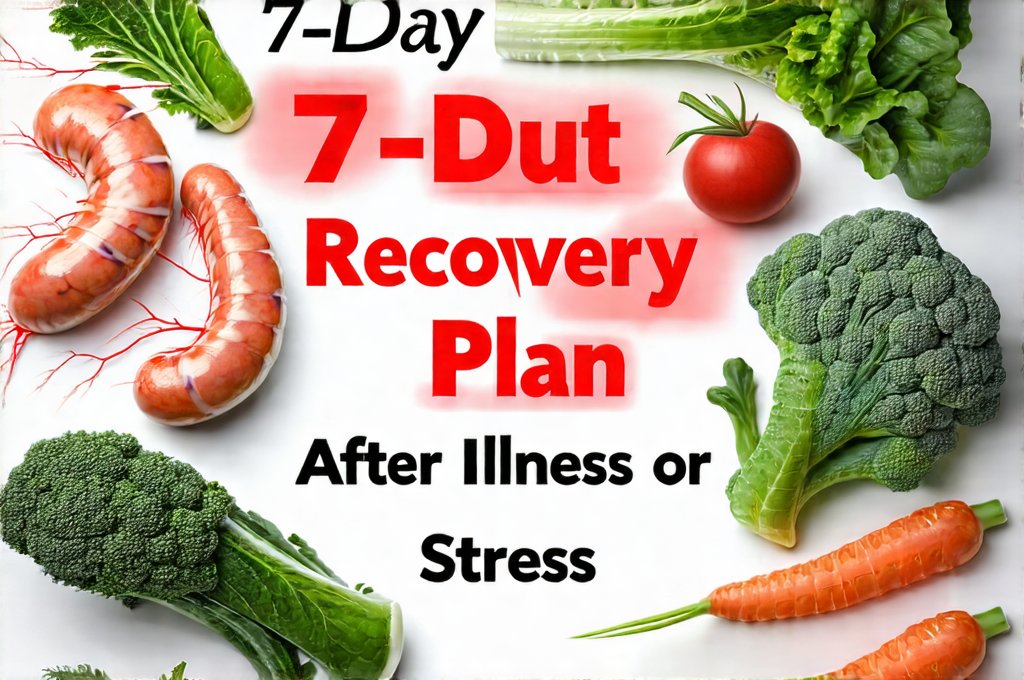Our gut is often called our “second brain” for good reason. It’s intimately connected to nearly every aspect of our health, from digestion and immunity to mood and mental clarity. When we experience illness – whether it’s a viral infection like the flu, bacterial issues, or even significant stress – our gut microbiome can become seriously disrupted. This disruption isn’t just about temporary discomfort; it can lead to longer-term digestive problems, weakened immunity, and overall reduced wellbeing. A proactive approach to gut recovery is therefore essential for restoring balance and rebuilding health after such events.
This 7-day plan isn’t a quick fix but rather a gentle, supportive strategy designed to help your gut heal naturally. It focuses on reducing inflammation, nourishing beneficial bacteria, and easing the digestive system back into optimal function. It’s built around easily digestible foods, soothing practices, and mindful self-care. Remember that everyone is different, so listen to your body and adjust the plan as needed. The goal isn’t perfection but consistent effort towards rebuilding a healthy gut foundation.
Understanding Gut Disruption & Recovery
Gut health is a complex ecosystem composed of trillions of microorganisms – bacteria, fungi, viruses, and others – collectively known as the microbiome. Illness and stress can drastically alter this delicate balance, often leading to dysbiosis, an imbalance in the gut flora. This happens because things like antibiotics (used to treat bacterial infections) kill both harmful and beneficial bacteria indiscriminately. Stress elevates cortisol levels, which impacts gut motility and permeability – sometimes called “leaky gut” – allowing undigested food particles and toxins to enter the bloodstream, triggering inflammation.
Recovering from this disruption involves several key strategies. First, reducing inflammatory foods is crucial. This means temporarily minimizing sugar, processed foods, caffeine, alcohol, and potentially dairy or gluten if you suspect sensitivities. Second, providing nourishment for beneficial bacteria is essential; this is achieved through prebiotic rich foods (foods that feed the good bacteria) and potentially probiotic-rich fermented foods. Finally, easing digestive strain – by consuming easily digestible foods and practicing mindful eating – allows your gut to rest and repair itself.
This recovery process isn’t just about what you eat; it’s also about creating an environment that supports healing. Stress management techniques like meditation, deep breathing exercises, or gentle movement are vital for reducing cortisol levels and promoting a calmer digestive system. Adequate sleep is another cornerstone of gut health, as it allows the body to repair and restore itself overnight.
The 7-Day Gut Recovery Meal Plan Focus
The foundation of this plan centers around easily digestible foods that minimize stress on the gut. Think soft textures, cooked vegetables, lean proteins, and healthy fats. Here’s a breakdown of food groups to prioritize and those to temporarily avoid:
- Prioritize: Bone broth (rich in collagen and amino acids), steamed or boiled vegetables (carrots, zucchini, spinach), white rice, sweet potato, plain yogurt or kefir (if tolerated – assess for dairy sensitivity), lean poultry or fish, avocado, olive oil.
- Temporarily Avoid: Processed foods, sugary drinks, alcohol, caffeine, spicy foods, cruciferous vegetables (broccoli, cauliflower, cabbage – can be difficult to digest initially), gluten-containing grains (wheat, barley, rye), excessive amounts of dairy (unless well-tolerated).
The goal isn’t restrictive dieting but rather a temporary adjustment to support healing. It’s about giving your gut a break from foods that might exacerbate inflammation or digestive discomfort. Remember to stay hydrated throughout the day – water is essential for digestion and overall health. Aim for at least 8 glasses of filtered water daily.
Incorporating Pre- & Probiotics Naturally
While probiotic supplements can be helpful, integrating pre- and probiotics through food sources is a gentle and sustainable approach. Prebiotics act as food for the beneficial bacteria in your gut, helping them thrive. Good sources include: bananas (slightly green are best), oats, applesauce, garlic, onions, asparagus, leeks, and dandelion greens.
Probiotics, on the other hand, introduce live beneficial bacteria to your gut. Fermented foods are excellent sources. Consider incorporating small amounts of: kefir (if tolerated), sauerkraut, kimchi, kombucha (unsweetened), or miso paste. Start slowly with fermented foods, as they can sometimes cause temporary bloating or gas if you’re not accustomed to them.
It’s important to note that the types of probiotics and prebiotics found in food are diverse, offering a wider range of benefits compared to many single-strain supplements. Building a varied diet rich in both will contribute significantly to a healthy microbiome.
Lifestyle Factors for Gut Healing
Beyond dietary changes, several lifestyle factors play a significant role in gut recovery. Stress management is paramount. Chronic stress suppresses the immune system and disrupts digestion. Incorporate relaxation techniques like: deep breathing exercises (box breathing is excellent), meditation, yoga, or spending time in nature. Even 10-15 minutes of daily mindfulness can make a difference.
Prioritize sleep. Aim for 7-9 hours of quality sleep each night. Sleep deprivation disrupts the gut microbiome and impairs immune function. Create a relaxing bedtime routine to promote restful sleep. Finally, gentle movement is beneficial – avoid strenuous exercise initially, but opt for walking, light stretching, or restorative yoga. Movement aids digestion and reduces stress without overtaxing your system.
This plan offers a starting point for gut recovery. Remember that consistency and self-awareness are key to unlocking lasting wellbeing. Listen to your body’s signals and adjust the plan as needed. If symptoms persist or worsen, it’s essential to consult with a healthcare professional.




